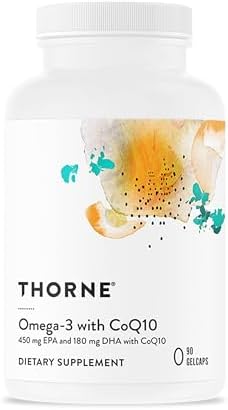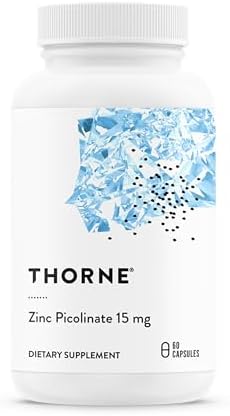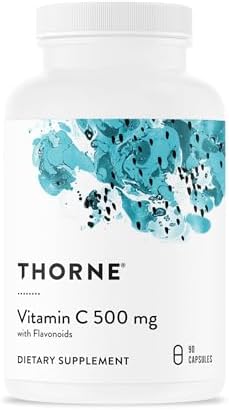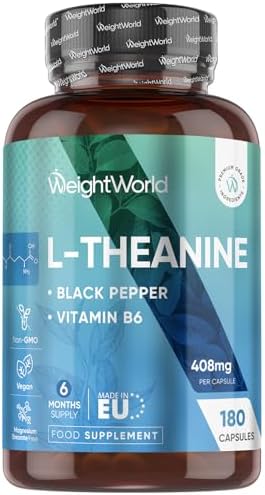Tired of feeling drained by 3 PM? You’re not alone—millions battle daily fatigue, often unaware that simple nutritional gaps could be the culprit. Below, you’ll discover seven scientifically-backed supplements that naturally boost energy, sharpen focus, and restore vitality. No complicated routines or expensive treatments—just proven nutrients that fill the gaps modern life creates. Ready to feel like yourself again? Let’s dive in.

Discover what works for you — hover over the images below to explore blogs tailored to your interests.


Explore The Key Takeaways
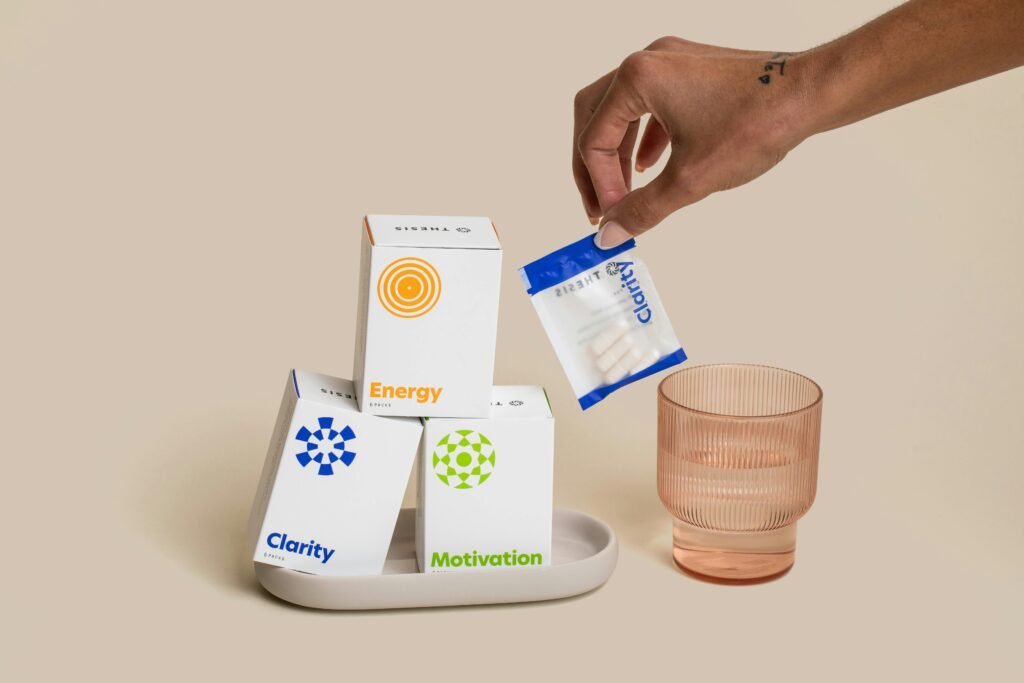
Top 7 Supplements for Overall Wellness and Energy: Your Complete Guide
Feeling tired throughout the day? You’re not alone. In fact, nearly 76% of Americans experience fatigue during typical workdays. While proper sleep and nutrition form the foundation of good health, targeted supplements can bridge nutritional gaps. As a result, you can boost energy levels naturally.
Consequently, this guide showcases seven science-backed supplements that can transform your wellness journey.
1. Vitamin D3: The Sunshine Vitamin
Over 1 billion people worldwide suffer from vitamin D deficiency. Your skin produces this essential nutrient when it absorbs sunlight. However, modern indoor lifestyles often create these deficiencies.
Low vitamin D levels link to fatigue, mood changes, and weakened immunity. Moreover, this vitamin plays a crucial role in bone health and muscle function. Therefore, people with limited sun exposure can particularly benefit from supplementation.
What to look for: Choose vitamin D3 over D2, as it’s more effectively absorbed by your body. A daily dose of 1000-2000 IU is recommended for most adults.
Ready to boost your vitamin D levels? Check out our recommended high-quality D3 supplements here.
2. Magnesium: The Relaxation Mineral
Magnesium participates in over 300 enzymatic reactions throughout your body. Unfortunately, it also represents one of the most common nutrient deficiencies in developed countries. As a matter of fact, up to 80% of people may lack this crucial mineral.
This mighty mineral supports energy production at the cellular level. In addition to this, magnesium regulates sleep patterns and reduces stress hormones. Consequently, users often report improved sleep quality within just a few days of beginning supplementation.
Best forms: Magnesium glycinate is easily absorbed and gentle on the stomach. Take 200-400mg before bedtime for optimal results.
Discover premium magnesium supplements that actually work here.
3. Omega-3 Fatty Acids: Brain and Heart Support
Your brain consists of nearly 60% fat, making omega-3s essential for cognitive function. These healthy fats also act as powerful anti-inflammatory agents throughout your entire body.
Research demonstrates that omega-3 supplementation can improve focus, memory, and mood. Furthermore, these essential nutrients support cardiovascular health and may reduce exercise-induced inflammation.
Quality matters: Look for supplements with both EPA and DHA. Third-party testing ensures purity and potency. Aim for 1000-2000mg daily of combined EPA and DHA.
Find pharmaceutical-grade omega-3 supplements here.
4. B-Complex Vitamins: The Energy Powerhouse
B vitamins transform food into usable energy at the cellular level, making them your body’s natural energy converters. Each B vitamin performs a specific role in energy metabolism. However, stress, processed foods, and certain medications can deplete B vitamin stores.
As a result, many people experience low energy and brain fog. Fortunately, B-complex supplements provide all eight essential B vitamins in balanced ratios. Therefore, they can support optimal energy metabolism more effectively.
Key benefits: Improved energy, better mood, and enhanced cognitive function are commonly reported within 2-3 weeks of consistent use.
Shop high-potency B-complex vitamins here.
5. Coenzyme Q10: The Cellular Energy Booster
Every cell in your body contains CoQ10, which plays an essential role in producing ATP, your body’s primary energy currency. Natural CoQ10 production decreases with age, particularly after 30 years old.
This powerful antioxidant particularly benefits heart health and exercise recovery. Additionally, CoQ10 supplementation may reduce fatigue in people with chronic conditions. Studies show significant energy improvements after 6-8 weeks of consistent supplementation.
Dosage guidance: Start with 100-200mg daily with a meal containing fat for better absorption.
Get clinically-proven CoQ10 supplements here.
6. Ashwagandha: The Stress-Fighting Adaptogen
Health experts consider chronic stress an energy thief. Ashwagandha is an ancient herb that helps your body manage stress more effectively. As an adaptogen, it helps restore balance to your system.
Research demonstrates that ashwagandha can lower cortisol levels by up to 30%. Lower stress hormones often translate to better energy and improved sleep quality. Furthermore, this powerful herb may enhance physical performance and muscle strength.
What to expect: Most people notice reduced stress and better energy within 2-4 weeks of consistent use.
Try premium ashwagandha supplements here.
7. Iron: The Oxygen Transporter
Iron deficiency represents the most common nutritional deficiency globally. This essential mineral transports oxygen throughout your body. Without adequate iron, your cells cannot produce energy efficiently.
Low iron levels cause fatigue, weakness, and difficulty concentrating. Nevertheless, you should approach iron supplementation carefully. Too much iron can cause harm, so experts recommend testing before you start supplementation.
Important note: Your body best absorbs iron on an empty stomach when you take it with vitamin C. However, this can cause stomach upset, so you should start with smaller doses initially.
Find gentle, easily-absorbed iron supplements here.
Making Supplements Work for You
You should prioritize quality when choosing supplements. Third-party testing, proper dosing, and reputable manufacturers make the difference between results and wasted money.
Start with one or two supplements rather than taking everything at once. This approach helps you identify what works best for your body. Additionally, consistency remains key – most supplements require 4-6 weeks to show full benefits.
Remember that supplements work best alongside healthy lifestyle habits. Proper sleep, regular exercise, and balanced nutrition provide the foundation for optimal wellness.
The Bottom Line
These seven supplements offer science-backed support for energy and overall wellness. While individual needs vary, most people benefit from addressing common deficiencies in vitamin D, magnesium, and B vitamins first.
Your journey to better energy and wellness starts with small, consistent steps. These supplements can bridge nutritional gaps and support your body’s natural energy production systems.
Ready to transform your energy levels? Explore our complete selection of premium wellness supplements here.
Disclaimer: This information is for educational purposes only and is not intended to diagnose, treat, cure, or prevent any disease. Consult with your healthcare provider before starting any new supplement regimen, especially if you have existing health conditions or take medications.

Multivitamins: Are They Worth It for Everyday Health?
Picture this: You’re standing in the supplement aisle, staring at rows of colorful bottles promising better energy, stronger immunity, and overall vitality. Meanwhile, that little voice in your head wonders, “Do I actually need these multivitamins, or am I just buying expensive pee?”
You’re not alone in this dilemma. Millions of people ask themselves the same question every day. Let’s dive into the real story behind multivitamins and help you make an informed decision about your health.
The Modern Nutrition Gap
Here’s the uncomfortable truth: Most of us aren’t getting all the nutrients we need from food alone. Despite our best intentions, busy lifestyles often lead to quick meals, processed foods, and nutritional shortcuts.
Research shows that even people who follow healthy diets may have gaps in their nutrient intake. For instance, studies reveal that nearly 95% of Americans don’t get enough vitamin D, and about 68% fall short on magnesium. These deficiencies can quietly impact your energy levels, immune function, and overall well-being.
However, the solution isn’t always straightforward. Not all multivitamins deliver the same benefits, and choosing the right one makes all the difference.
Who Actually Benefits from Multivitamins?
Multivitamins aren’t a one-size-fits-all solution. Certain groups of people genuinely benefit more than others:
Busy professionals often struggle to maintain balanced diets. Between back-to-back meetings and deadline pressures, grabbing a comprehensive multivitamin can help bridge nutritional gaps when proper meals become impossible.
Vegetarians and vegans frequently need additional support for nutrients like B12, iron, and omega-3 fatty acids. Plant-based diets offer incredible health benefits, but some essential nutrients remain harder to obtain without animal products.
Pregnant women require extra folate, iron, and other nutrients to support both their health and their baby’s development. Prenatal vitamins specifically address these increased needs.
Older adults may absorb nutrients less efficiently as they age. Additionally, medication interactions can interfere with nutrient absorption, making supplementation more valuable.
People with dietary restrictions due to allergies, intolerances, or medical conditions often miss out on entire food groups and their associated nutrients.
The Science Behind Multivitamin Effectiveness
Recent scientific evidence presents a mixed but increasingly positive picture. Large-scale studies now show that quality multivitamins can provide meaningful health benefits.
The Physicians’ Health Study II, which followed over 14,000 male doctors for more than a decade, found that those taking multivitamins had an 8% lower risk of cancer. Similarly, other research suggests that consistent multivitamin use may support cognitive function and reduce the risk of heart disease.
Nevertheless, the key word here is “quality.” Not all multivitamins deliver these benefits. Cheap, poorly formulated supplements often contain synthetic nutrients in forms your body struggles to absorb. Moreover, some contain unnecessary fillers or artificial additives that may actually work against your health goals.
What Makes a Multivitamin Actually Work?
The effectiveness of a multivitamin depends on several crucial factors that many people overlook:
Bioavailability matters most. Your body needs to actually absorb and use the nutrients. Look for multivitamins that use chelated minerals and active forms of vitamins. For example, methylfolate works better than folic acid for many people, and magnesium glycinate absorbs more easily than magnesium oxide.
Proper dosing prevents waste. Some vitamins work better together, while others compete for absorption. Well-formulated multivitamins space out nutrients appropriately or combine them strategically. Iron and calcium shouldn’t be taken together, but vitamin C enhances iron absorption.
Third-party testing ensures quality. Reputable brands submit their products for independent testing to verify purity and potency. This extra step protects you from contaminated or mislabeled products.
Whole food sources often work better. Nutrients derived from whole foods typically offer superior absorption compared to synthetic alternatives. Your body recognizes these natural forms more readily.
Common Multivitamin Mistakes to Avoid
Even with the best intentions, people make several common mistakes that reduce their multivitamin’s effectiveness:
Taking them on an empty stomach often leads to nausea and poor absorption. Fat-soluble vitamins (A, D, E, K) especially need food for proper uptake.
Assuming more is always better can actually harm your health. Some nutrients become toxic in high doses, while others simply get excreted, wasting your money.
Ignoring medication interactions can be dangerous. Blood thinners, for instance, don’t mix well with vitamin K, while some antibiotics lose effectiveness when taken with minerals.
Choosing based on price alone typically leads to disappointment. Ultra-cheap multivitamins often contain poorly absorbed forms of nutrients or inadequate amounts to make a difference.
Finding Your Perfect Multivitamin Match
Your ideal multivitamin depends on your unique circumstances, health goals, and lifestyle factors. Consider these key questions:
What does your typical diet look like? Track your food intake for a few days to identify potential gaps. Someone who eats plenty of leafy greens might need less folate but more vitamin D.
Do you have any health conditions or take medications? These factors significantly influence your nutrient needs and absorption capacity.
What’s your age and gender? Men typically need less iron than women, while older adults often require more B12 and vitamin D.
How’s your digestive health? Poor gut health can interfere with nutrient absorption, making certain forms of supplements more important.
Based on these factors, you might thrive with a basic multivitamin, or you might need something more specialized. Premium options like Garden of Life’s Vitamin Code or New Chapter’s Perfect Daily offer whole-food-based nutrients that many people find easier to tolerate and more effective.
The Real-World Impact
Sarah, a marketing executive and mother of two, struggled with afternoon energy crashes despite drinking multiple cups of coffee. After three months of taking a high-quality multivitamin containing active B vitamins and chelated iron, she noticed sustained energy throughout the day. More importantly, her annual blood work showed improvements in several nutrient markers.
Stories like Sarah’s highlight why the right multivitamin can make a genuine difference. It’s not about miraculous transformations but rather about supporting your body’s basic functions so you can feel your best.
Making the Investment Count
Quality multivitamins represent an investment in your long-term health. When you consider the cost of potential health issues down the road, spending a bit more on a well-formulated supplement makes financial sense.
Look for brands that prioritize transparency, use high-quality ingredients, and back their products with research. Companies like Thorne, Life Extension, and Athletic Greens have built reputations on creating effective, science-based formulations.
Remember, a multivitamin works best as part of a healthy lifestyle, not as a replacement for good nutrition and self-care habits.
Your Next Steps
Multivitamins can be incredibly valuable tools for supporting your everyday health, but only when chosen thoughtfully. Start by honestly assessing your current diet and lifestyle. Then, research options that address your specific needs rather than grabbing whatever’s on sale.
Consider consulting with a healthcare provider, especially if you have health conditions or take medications. They can help identify any specific nutrient needs or potential interactions.
Finally, give any new multivitamin at least three months to show results. Nutritional changes take time, and consistency matters more than perfection.
Your health deserves an investment in quality. Choose a multivitamin that works with your body, not against it, and experience the difference that proper nutritional support can make in your daily life.

The Best Supplements for Stress Recovery and Relaxation
Stress hits us all differently. Your shoulders might feel like concrete blocks after a tough day, while your mind races at 2 AM. Sound familiar? You’re not alone in this struggle.
Modern life throws curveballs constantly. Work deadlines pile up. Family demands multiply. Meanwhile, your body keeps the score, storing tension in places you didn’t know existed.
Why Your Body Craves Recovery Support
Your stress response system works overtime these days. Think of it like a car engine that never gets to cool down. Eventually, something’s got to give.
When stress becomes chronic, your adrenal glands pump out cortisol like there’s no tomorrow. This hormone wreaks havoc on your sleep, digestion, and energy levels. Additionally, your nervous system stays stuck in fight-or-flight mode.
Here’s the thing though – your body wants to heal. It just needs the right tools to get back on track.
The Game-Changing Supplements That Actually Work
Magnesium: Your Muscle’s Best Friend
Magnesium deficiency affects nearly 80% of adults. This mineral acts like a natural chill pill for your nervous system. It relaxes tight muscles, calms racing thoughts, and helps you actually stay asleep.
[Consider trying a high-quality magnesium supplement] that your body can easily absorb. Magnesium glycinate works particularly well because it doesn’t upset your stomach like other forms might.
You’ll notice the difference within days. Your jaw unclenches. Your shoulders drop. Sleep comes easier.
Ashwagandha: The Ancient Stress Fighter
This adaptogenic herb has helped people manage stress for over 3,000 years. Modern research proves what ancient wisdom already knew – ashwagandha significantly lowers cortisol levels.
Studies show it reduces stress by up to 44% within eight weeks. Moreover, it boosts energy without the jittery feeling you get from caffeine.
[A standardized ashwagandha extract] gives you consistent results every time. Look for products that specify the percentage of withanolides – these are the active compounds that do the heavy lifting.
L-Theanine: Calm Focus in a Capsule
Ever wonder why tea feels so relaxing? L-theanine is your answer. This amino acid promotes relaxation without drowsiness. It’s like having a dimmer switch for your stress response.
Research shows L-theanine increases alpha brain waves. These are the same waves you produce during meditation. Consequently, you feel alert yet peaceful at the same time.
[Pure L-theanine supplements] work faster than tea because you’re getting a concentrated dose. Take it during stressful moments, and watch your anxiety melt away.
The Power Trio for Deep Relaxation
GABA: Your Brain’s Natural Brake Pedal
GABA is your brain’s primary inhibitory neurotransmitter. Simply put, it tells your overactive mind to slow down. Low GABA levels contribute to anxiety, insomnia, and that wired-but-tired feeling.
Supplementing with GABA helps restore balance. Your thoughts quiet down. Sleep becomes more restorative. Stress stops feeling so overwhelming.
[High-quality GABA supplements] cross the blood-brain barrier more effectively when combined with certain cofactors. This means you actually feel the calming effects instead of just hoping they work.
Melatonin: More Than Just a Sleep Aid
Most people know melatonin helps with sleep. However, it’s also a powerful antioxidant that protects your brain from stress damage. It regulates your circadian rhythm, which stress loves to disrupt.
Timing matters with melatonin. Take it too early, and you’ll feel groggy. Take it too late, and you’ll toss and turn all night.
[A controlled-release melatonin formula] mimics your body’s natural production curve. You fall asleep easier and wake up refreshed instead of foggy.
Rhodiola: The Fatigue Fighter
Chronic stress leaves you exhausted yet unable to rest. Rhodiola rosea breaks this vicious cycle. This adaptogen boosts your stress tolerance while fighting fatigue.
Clinical trials show rhodiola improves stress symptoms within just three days. It works especially well for stress-related burnout and mental fatigue.
[Standardized rhodiola extract] ensures you’re getting the right compounds in therapeutic doses. Your energy returns, but it feels calm and sustainable.
Creating Your Personal Stress Recovery Stack
Start with one supplement at a time. Your body needs time to adjust and show you what works best. Magnesium often provides the quickest relief, making it an ideal starting point.
Next, add an adaptogen like ashwagandha or rhodiola. These work deeper, helping your stress response system recalibrate over time.
Finally, consider L-theanine for acute stress moments. Keep it handy for particularly challenging days.
Timing Your Supplements for Maximum Impact
Morning supplements should energize without overstimulating. Ashwagandha and rhodiola work well here. They build your stress resilience throughout the day.
Evening supplements focus on recovery and relaxation. Magnesium, GABA, and melatonin help your body transition into rest mode.
L-theanine fits anywhere. Take it when stress peaks, regardless of time.
Signs Your Supplements Are Working
Week one might bring subtle changes. Your sleep improves slightly. Tense muscles begin to soften.
By week two, the effects become more noticeable. Stressful situations don’t hit quite as hard. You feel more like yourself again.
Month one typically shows the biggest transformation. Your stress tolerance increases dramatically. Recovery happens faster after difficult days.
Quality Matters More Than Price
Not all supplements are created equal. Third-party testing ensures purity and potency. Standardized extracts provide consistent results.
Choose reputable brands that invest in quality control. Your health deserves better than cheap fillers and questionable manufacturing.
Look for certifications like USP verification or NSF testing. These indicate serious quality standards.
Your Path to Calmer Days
Stress recovery isn’t about eliminating all pressure from your life. It’s about giving your body the tools to handle whatever comes your way.
The right supplements act like a safety net. They catch you when stress tries to knock you down. More importantly, they help you bounce back stronger.
Your journey to better stress management starts with a single step. [Find the supplements that resonate with you] and begin building your resilience today.
Remember, consistency beats perfection. Small daily actions create lasting change. Your calmer, more resilient self is waiting just around the corner.

